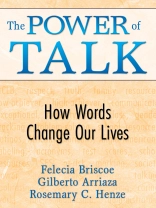’I couldn′t stop reading this book! It masterfully pinpoints how language plays a critical, fundamental role in our daily lives as educators. Most important, it shows us how our deepest thoughts are manifested in language and how we can deal with them in our continued efforts to dismantle gender, racial, and class prejudice.’
—Susan Roberta Katz, Professor and Chair of International & Multicultural Education
University of San Francisco
’The authors show that by thinking critically about how we interact with others and by making the necessary changes in our own behavior, leaders can model respectful and collaborative ways of addressing and responding to others and gradually change the norms of the whole community.’
—Gordon Wells, Professor of Education
University of California, Santa Cruz
’Any chapter is enough for a year′s worth of conversation, and occasionally a good argument—among students, staff, and families. The book is an invitation to dialogue with one′s peers, but it also prompts dialogue with oneself. A must-read.’
—Deborah W. Meier, Educational Reformer, Writer, and Activist
Unlock the power of language to promote equity in your school!
This enlightening book shows how everyday speech can be a transforming force in today′s schools, creating a more equitable environment for people of all backgrounds. Written by experts on language and diversity, this resource combines research-validated tools and real-world insights for addressing verbal communication issues within the classroom and schoolwide. Readers will find:
- Case studies and vignettes that show how language contributes to school change and shapes community relationships
- Thought-provoking exercises that strengthen language awareness and leadership skills
- Guidance on effectively coaching students and colleagues on equity issues and the use of appropriate language
By using language to overcome barriers, foster collaboration, and promote respect, leaders can make a significant difference in the quality of life and work in schools.
Innehållsförteckning
List of Tables
List of Figures
Acknowledgments
About the Authors
Introduction
Why? The Same Old Problem
What? The Book’s Purpose
How? Achieving the Purpose
What Will You Get Out of This Book?
Avoiding the Master’s Language Tools
Overview of the Chapters
Where and When Might the Book Be Used?
1. The Power of Language: A Medium for Promoting Social Justice and Equity
In What Ways Is Language a Transformative Force in Society?
What Are Educational Equity and Social Justice
What Are Critical Discourse Analysis and Critical Language Awareness
Conclusion and Summary of Key Points
2. Becoming Effective in Using Critical Language Awareness
Noticing How Language Constructs Our Social World
Relating the Trees to the Forest, and the Forest to the Trees
Imagining Alternatives
Coaching
Teaching With Critical Language Awareness
Using Memorable Examples, Metaphors, and Quotes
Modeling, Teamwork, Inclusiveness, and Respect
Conclusion and Summary of Key Points
3. Avoiding Othering: Practicing Including
Introduction
A Change Agent in Action
How Is Othering Harmful?
Digging Deeper Into Othering
From Othering to Inclusion and Dialogue
Activities
Conclusion and Summary of Key Points
4. Disrupting Prejudice: A Communicative Approach
Introduction
Abstracting
Communicative Model
Developing a Data Culture
Activity: Developing Language Skills for Disrupting Prejudice
Conclusion and Summary of Key Points
5. Exceptionalizing or Democratizing?
Introduction
Exceptionalizing: How It Promotes Inequities
The Importance of Context
Cognitive Disequilibrium and Exceptionalizing
The Context of the Interviews
Recognizing Exceptionalizing Discourse
Revising for a More Democratizing Discourse
Activities for Developing Democratizing Language Skills
Conclusion and Summary of Key Points
6. Recognizing and Revising Stratifying Discourse
Introduction
Key Concepts
Recognizing and Revising Stratifying Discourse
Activities for Developing Language Skills for Social Justice
Conclusion and Summary of Key Points
7. Contesting Labels
Introduction
Contesting Labels
Acronyms as Deep Abstractions
Talk Strategies
Redressing Labels Through Institutional Action
Thoughtful Inaction
Activity: Crowning With Labels
Conclusion and Summary of Key Points
8. Conclusion: The Power of Talk
Revisiting the Book′s Objectives
Using the Power of Talk for Social Justice
A Final Thought
References
Index
Om författaren
Rosemary Henze is an associate professor in the Department of Linguistics and Language Development at San Jose State University. She began her career as a teacher of English as a second language and, after receiving her doctorate, worked for 14 years at Art, Research, and Curriculum Associates in Oakland, California, where she assisted school districts in addressing issues of equity and conducted research and evaluation studies focused on bilingual programs, school change, and race relations. She also worked with Native Alaskan, Native Hawaiian, and California Indian groups on issues related to language maintenance, ethnic identity, and bilingual education. In all her work, she seeks to apply scholarly knowledge from anthropology and linguistics to address systemic educational problems.












